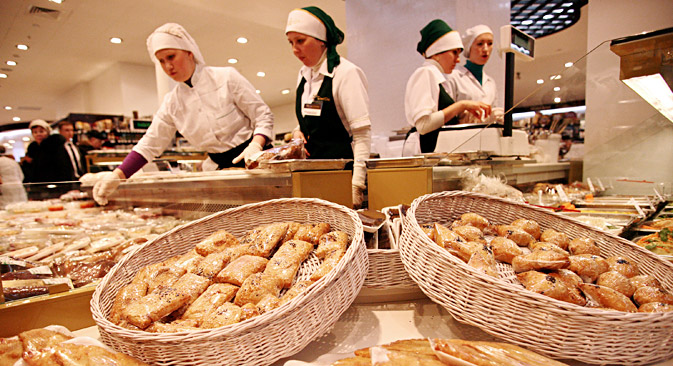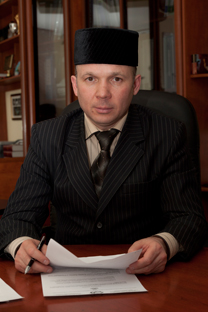
Source: Tass
RBTH: What does one have to do in order to receive a halal certificate in Russia?
Aidar Gazizov: Receiving a halal certificate is not a complicated process. First of all the establishment has to follow all the existing Russian and international sanitary norms. Then, during the process of certification we train them in the halal rules and requirements, carrying out a full analysis of production.
 |
Aidar Gazizov, general director of the International Center for Halal Standardization and Certification of the Russian Mufti Council. Source: Press photo |
In the beginning our center's collaborators thoroughly study the technological process, as well as the raw materials and the ingredients. Special attention must be given to establishments that produce meat products: The entire process of slaughtering the animal or bird has to be carried out in a humane manner and in accordance with Islamic law. Experts from the Halal Center make sure the collaborators follow all these regulations.
RBTH: How is the process of obtaining a certificate in Russia different from other countries?
AG: The process of obtaining a certificate in Russia is not that different from in other countries. We have established ties with leading world bodies and organizations, studied the experience of countries such as Malaysia, Turkey, the UAE, Saudi Arabia, Indonesia and others. Currently, there are plans to create a single, unified halal standard.
Many of the enterprises we have certified have successfully entered foreign markets in the Islamic world. As of today more than 150 producers and companies offering halal services have received a certificate from our center. It should be noted that the idea of halal does not only refer to food, but also to sectors such as tourism, hotel business, medicine and financial services.
RBTH: Which halal services are in demand in the Russian market? In particular, how successful is Islamic banking?
AG: The international standards of financial products that are in accordance with Sharia regulations have already been translated into Russian. However, our expert community and the Economy Department of the Russian Mufti Council must do more to resolve issues related to the implementation of these products.
Recently we have also seen active growth in halal certification in the hotel business. The annual turnover of the halal tourism market is estimated at more than $125 billion and its volume is 12.3 percent of world outbound tourism.
One of our goals is to increase the competitiveness of the Russian producer, to assist domestic halal production in entering the international market, and here government support is essential.
RBTH: With which countries have you already established cooperation in the halal industry?
AG: We have good relations with the Islamic nations, including countries from the Arab world, with whose embassies and ministries we hold regular meetings. In July 2014 our center was accredited to the UAE Ministry of Environment and Water Resources, something that will allow Russian producers to find potential Middle East halal markets.
The export of quality Russian halal production is opening new opportunities for developing Russia's agrarian and industrial sector. We have already certified the Kazan restaurant chain in the UAE, which is proof of the international status of the Russian certification body. Furthermore, one of the most important achievements of our center was the certification of halal cafeterias for the athletes of the 2014 Sochi Winter Olympic Games.
All rights reserved by Rossiyskaya Gazeta.
Subscribe
to our newsletter!
Get the week's best stories straight to your inbox